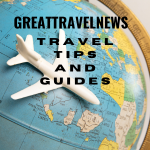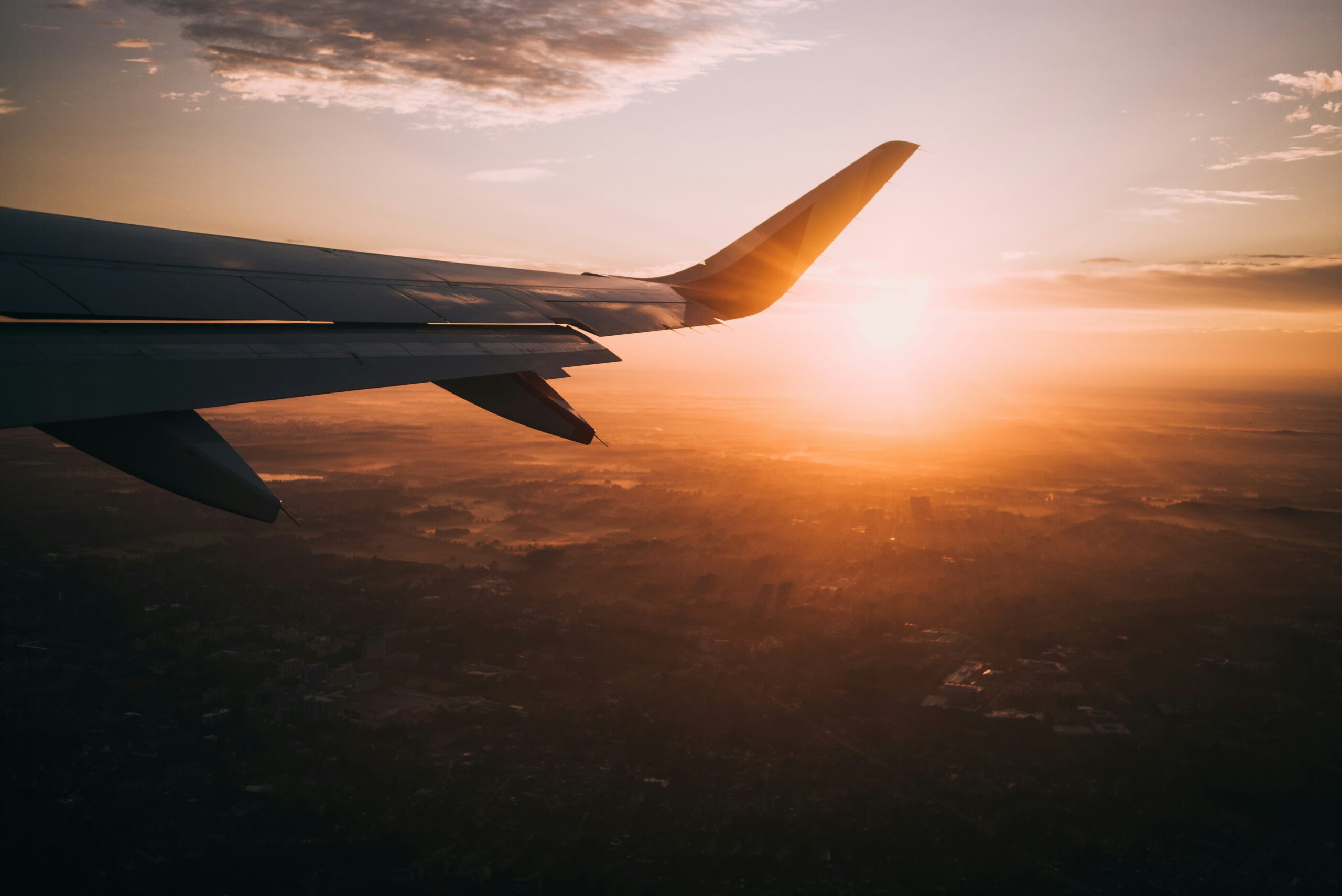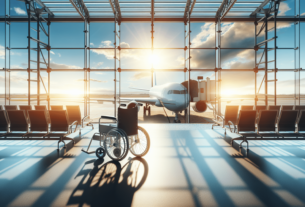Have you ever felt that flutter of nervousness before a trip, or perhaps even a gnawing sense of dread? If so, you’re not alone. Travel anxiety is a common issue that affects many people, often turning what should be a pleasant experience into a stressful ordeal. It’s important to understand that your feelings are valid, and that there are several effective strategies to help manage and even overcome travel anxiety. Let’s explore how you can achieve this.
🌴 Get Your FREE Bahamas Checklist!
Perfect for planning your island escape 🌊
We respect your privacy. Unsubscribe anytime.
Powered by greattravelnews.com
Understanding Travel Anxiety
What is Travel Anxiety?
Travel anxiety, sometimes referred to as travel phobia, is a sense of fear or worry related to traveling, whether it’s by plane, car, boat, or any other mode of transportation. This anxiety can stem from various factors, including fear of the unknown, fear of flying, or past traumatic travel experiences.
Symptoms of Travel Anxiety
Recognizing the symptoms of travel anxiety is the first step towards managing it. Symptoms can vary widely among individuals but generally include:
| Physical Symptoms | Emotional Symptoms |
|---|---|
| Increased heart rate | Excessive worry |
| Sweating | Irritability |
| Nausea | Feelings of dread |
| Shortness of breath | Panic attacks |
| Muscle tension | Fear of losing control |
By identifying these symptoms in yourself, you can started on the path to effectively managing your anxiety.
Causes of Travel Anxiety
Fear of Flying
Fear of flying is one of the most common causes of travel anxiety. Despite being one of the safest modes of transport, flying can provoke anxiety due to fear of heights, enclosed spaces, or loss of control.
Fear of the Unknown
Traveling to new places inherently involves stepping into the unknown. This can trigger anxiety, especially if you’re someone who finds comfort in familiar surroundings and routines.
Past Traumatic Experiences
A previous bad experience while traveling can leave a lasting impact, making future trips anxiety-inducing. This could involve losing luggage, getting lost in a foreign city, or experiencing an accident.
Lack of Control
The inability to control every aspect of a journey, from weather conditions to flight delays, can heighten anxiety for some individuals.
Strategies to Overcome Travel Anxiety
Preparation is Key
One of the most effective ways to combat travel anxiety is thorough preparation. The more prepared you are, the less room there is for anxiety to take hold.
Research Your Destination
Getting to know your destination can alleviate fears of the unknown. Look up information about the local culture, climate, transportation, and safety tips.
Make a Packing List
A detailed packing list can help you feel more in control and ensure you don’t forget any essentials. Plan your travel wardrobe according to the weather and activities you have planned.
Breathing Techniques
Practicing breathing techniques can be incredibly helpful in calming your nerves. Controlled breathing exercises help activate your body’s relaxation response, reducing anxiety.
Box Breathing
Box breathing is a simple technique you can practice anywhere:
- Inhale deeply through your nose for 4 seconds.
- Hold your breath for 4 seconds.
- Exhale slowly through your mouth for 4 seconds.
- Hold your breath again for 4 seconds.
Repeat this cycle until you start to feel calmer.
Cognitive Behavioral Therapy (CBT)
CBT is a proven method for treating various types of anxiety, including travel-related anxiety. This approach helps you identify and challenge the negative thought patterns that contribute to your anxiety.
Practice Mindfulness
Mindfulness involves being fully present in the current moment. Regular mindfulness practice can help reduce general anxiety levels and improve your ability to cope with travel anxiety. Apps like Headspace and Calm offer guided mindfulness exercises that are perfect for beginners.
Gradual Exposure
Gradual exposure is a technique that involves slowly exposing yourself to the source of your anxiety in a controlled manner. This method can help desensitize you to your fear.
Step-by-Step Approach
Start small. If flying causes you anxiety, begin by spending some time at an airport without traveling. Familiarize yourself with the environment and gradually work your way up to short flights.
Seek Professional Help
If your travel anxiety is severely impacting your life, it might be time to seek help from a professional. Therapists specializing in anxiety disorders can offer personalized strategies and support.
Use Technology Wisely
Technology can be both a blessing and a curse when it comes to travel anxiety. Use it wisely to stay informed and connected, but be mindful not to overwhelm yourself with too much information.
Stay Connected
Staying connected with family and friends during your travels can provide a sense of comfort and security. Use apps to share your location and keep in touch.
Travel Apps
Several apps can help make your travel experience smoother, from language translation apps to GPS and itinerary management tools.
Practical Tips for a Smoother Travel Experience
Choose Comfortable Travel Options
Booking comfortable travel options can make a significant difference in managing travel anxiety. Choose airlines or train services known for their comfort and reliability.
Opt for Non-Stop Flights
Whenever possible, opt for non-stop flights to minimize the stress associated with layovers and potential delays.
Seat Selection
If flying is your concern, choose a seat that makes you feel most comfortable, whether it’s an aisle seat for easy access or a window seat for a view.
Plan Your Itinerary Wisely
An overly packed itinerary can lead to stress and anxiety. Plan a balanced itinerary that allows for downtime and relaxation.
Incorporate Rest Days
Include rest days in your travel plans to recover from long travel days and to enjoy your destination at a leisurely pace.
Flexible Plans
Build some flexibility into your itinerary to accommodate changes or delays without causing unnecessary stress.
Stay Healthy
Taking care of your physical health can have a positive impact on your mental well-being during travel.
Eat Well
Maintain a balanced diet while traveling to keep your energy levels up and your mood stable. Avoid excessive caffeine and sugar, which can exacerbate anxiety.
Stay Hydrated
Dehydration can worsen anxiety symptoms, so make sure to drink plenty of water, especially during flights.
Exercise
Incorporate some form of exercise into your travel routine. Even a short walk can help reduce anxiety levels.
Avoid Triggers
Identify your specific anxiety triggers and take steps to minimize their impact.
Noise-Canceling Headphones
If noise is a trigger, invest in a good pair of noise-canceling headphones to create a more peaceful environment.
Entertainment
Bring along some form of entertainment to distract yourself, whether it’s a book, music, or a podcast.
Managing Anxiety During Travel
At the Airport or Station
Navigating through crowded airports or stations can be overwhelming. Arrive early to give yourself plenty of time to check in and go through security. Bring along something comforting, like a favorite snack or a small cozy item, to help ease your nerves.
On the Plane or Train
Use the in-flight or in-train time to practice relaxation techniques. This is a good time to meditate, listen to calming music, or watch a light-hearted movie. Stretching and moving around, if possible, can also help alleviate anxiety.
Upon Arrival
When you arrive at your destination, take some time to acclimate yourself. Settle into your accommodation and familiarize yourself with the immediate surroundings. Having a plan for your first day can help reduce anxiety about the unknown.
Utilizing Support Networks
Travel with a Companion
If possible, travel with someone you trust. Having a companion can provide emotional support and help ease your anxiety.
Inform Your Support System
Let friends and family know about your travel plans and your anxiety. They can offer support and reassurance, which can be comforting.
Online Communities
Join online communities or forums where people share their travel experiences and tips. Knowing that others have faced and overcome similar challenges can be very reassuring.
Alternatives to Traditional Travel
Virtual Travel
If your anxiety is too overwhelming, consider virtual travel options. Many platforms offer virtual tours of famous landmarks and cities, allowing you to experience the joys of travel from the comfort of your home.
Local Exploration
Start small by exploring your local area. This can help build confidence and reduce anxiety about venturing further from home.
Final Thoughts
Travel anxiety can be an overwhelming experience, but it doesn’t have to prevent you from exploring the world. By understanding the root causes of your anxiety and employing the strategies discussed, you can take significant steps towards managing and overcoming your fears. Remember, it’s okay to seek help from professionals and to lean on your support networks. With preparation and practice, you can turn your travel anxiety into a manageable part of your adventures.
Every journey starts with a single step, and by addressing your travel anxiety, you’re paving the way for countless exciting explorations and experiences. So, pack your bags, take a deep breath, and get ready to discover the world—one calm and confident step at a time.



